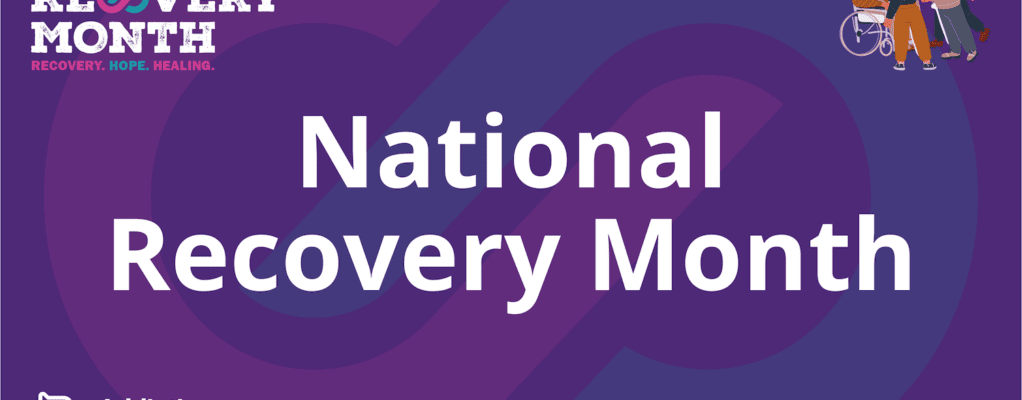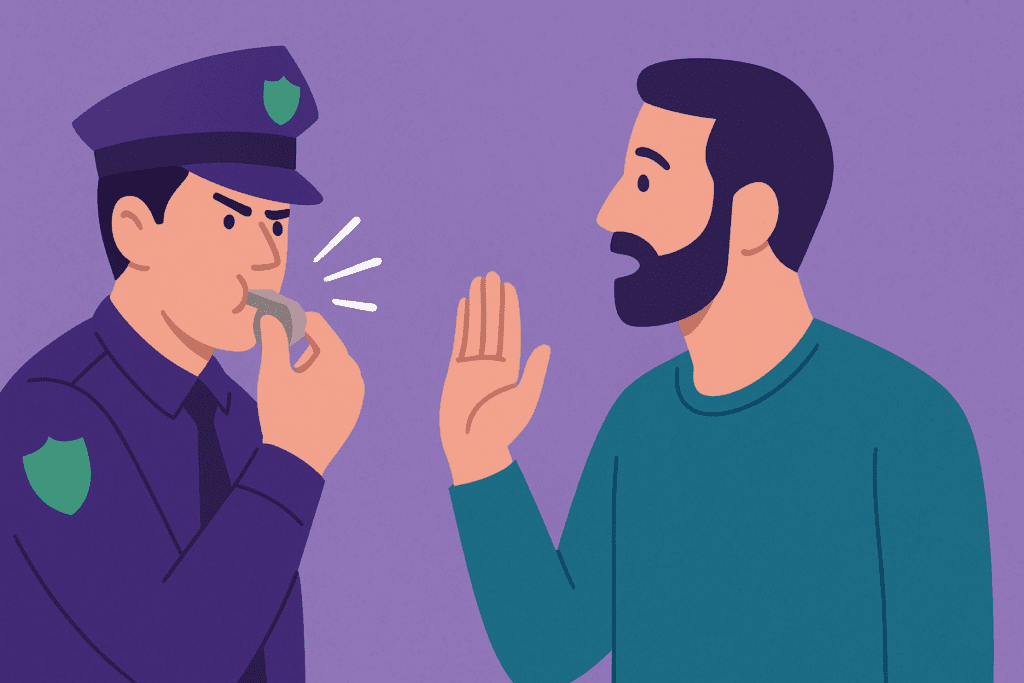National Recovery Month 2024

National Recovery Month 2024
September 2024 is National Recovery Month in the United States, a time to focus on raising awareness about addiction, including substance use disorders and mental health disorders.
As we consider what’s going on this month, it also serves as an important reminder about why recovery services are so important and why people need ongoing recovery support services, whether through ongoing treatment via outpatient care or through therapy, which is very common.
This month connects communities, healthcare providers, and those in recovery, showing that treatment can work and recovery is possible. It is a month of education, hope, and empowerment for all those affected by addiction.
What is National Recovery Month?
National Recovery Month is founded by the Substance Abuse and Mental Health Services Administration (SAMHSA) and is observed each September. It promotes evidence-based treatment options and recovery practices for people seeking recovery who have battled substance use, mental health disorders, and behavioral health.
Supporting public dialogue about these issues during National Recovery Month can reduce stigma, educate the public, and celebrate the growth and progress of those in recovery today.
This observance is essential in raising awareness about how substance use and mental illness can impact families, individuals, and communities at large. It also highlights the critical role of treatment and recovery services. It reminds us of the resilience and strength of those battling addiction. This acknowledgment counters a commonly held belief that addicts are weak or inferior.
Why Do We Need National Recovery Month?
SAMHSAs own material points out five reasons we need to observe National Recovery Month to promote addiction recovery.
- Recovery is Becoming Prevalent: In 2021, 70 million adults in the U.S. reported having had a substance use or mental health problem at some point, and 72.1% of them (about 50.2 million) considered themselves to be in recovery.
- Substance Use Recovery: Of the 29 million adults who perceived they had a substance use problem, 72.2% (or 20.9 million) considered themselves to be in recovery or to have recovered.
- Mental Health Recovery: Among the 58.7 million adults who believed they had a mental health problem, 66.5% (or 38.8 million) considered themselves to be in recovery or to have recovered.
- Impact of COVID-19 on Recovery: Adults who reported that COVID-19 negatively impacted their mental health or substance use were less likely to be in recovery. Those who believed the pandemic worsened their substance use or mental health saw a decrease in their recovery success.
- Access to Treatment Affects Recovery: Adults who received treatment for substance use or mental health issues in the past year were significantly more likely to report being in recovery compared to those who did not receive treatment.
The Dangerous Rise of Opioids
The rise of opioid use disorder, particularly driven by the increased prevalence of fentanyl, has created a public health crisis of staggering proportions.
Fentanyl, a synthetic opioid, is up to 50 times stronger than heroin and 100 times more potent than morphine, making it highly dangerous, especially when illicitly manufactured. Its potency has contributed to a sharp increase in opioid overdose deaths, with fentanyl now involved in more than half of opioid-related fatalities. The dangers of fentanyl underscore the urgent need to prioritize recovery efforts, as those struggling with opioid addiction face a high risk of accidental overdose.
Effective, evidence-based treatment and recovery services are critical to curbing the epidemic and saving lives. Comprehensive approaches, including harm reduction strategies, access to medication-assisted treatment (MAT), and robust support networks, are essential in helping individuals recover and preventing further loss of life.
More About National Recovery Month
National Recovery Month was established as an annual observance in 1989 by SAMHSA under President George H.W. Bush. The goals, as stated, were to raise awareness about mental health and substance use treatment and celebrate everyone on a recovery journey.
Not only does SAMHSA launch this campaign, but they have also provided helpful resources, including toolkits, social media campaign support, and special events, to help individuals and communities organize and communicate about this month. These resources allow every person to engage with others on social media and share important and often life-saving information.
Purple is the designated color for Recovery Month and symbolizes recovery and unity while also serving as a beacon of hope and signifying courage and resilience in our country’s ongoing fight against addiction. By wearing purple, individuals show their commitment and support for the cause to foster compassion and understanding. The color purple is also featured in events, social media campaigns, and awareness activities; people wear purple ribbons or clothing to show their support. The simple act of wearing the color purple can create conversations, reduce stigma, and encourage people to share their stories. Sharing your recovery story is one of the best ways to help others.
September is also an important timeframe because it aligns with the end of summer, symbolizing a fresh start as individuals prepare for a new season. The timing also underscores the importance of consistent support and remaining committed to recovery year-round.
It is also not lost on those in recovery that the post-summer period is often one of the most potentially triggering times of the year as we get closer to holidays, including Halloween, Thanksgiving, Christmas, New Year, and also the fall re-emergence of popular American sports such as the NFL season kicking off.
SAMHSA’s Four Dimensions of Recovery
SAMHSA focuses on four major dimensions of recovery: health, home, purpose, and community. All of these are factors that we need to live healthy, happy lives and reach our full potential.
The month is split into four weeks, beginning with health. The key message is to strive to be healthier and achieve our wellness goals. In week two, home is the operative word; the key message is that we all need a stable and safe place to call home. Week three is about purpose, with the key message being that finding purpose in life may be a powerful driver for recovery. Week four is about building social support, emphasizing that a caring community is essential for recovery.
White House Proclamation by President Biden
President Biden proclaimed September 2024 as National Recovery Month. During his proclamation, released on August 30th, 2024, President Biden recognized that there are more than 21 million Americans in recovery from substance use disorder, which means that 6% of the entire country are in recovery at this time. President Biden, who has experienced addiction firsthand as a father, noted that his son Hunter has been open about his addiction challenges.
During National Recovery Month, we at addictionhelp.com are focused on celebrating the wins for those in recovery and encouraging people to take that step and find recovery in their own lives.
Have You Heard of National Addiction Professionals Day?
National Recovery Month also includes National Addiction Professionals Day, which takes place on September 20th, 2024, to celebrate the healthcare system’s service providers who help people, such as our co-founder, Dr. Kent S. Hoffman, an addiction professional.
National Addiction Professionals Day was founded in 1992 to celebrate the hard work that addiction professionals do on a daily basis. The Association for Addiction Professionals, NAADAC, provides toolkits similar to SAMHSA’s, and the executive director of NADAC, Terrence D. Walton, expressed his honor to be among the ranks of addiction professionals, saying,
National Addiction Professionals Day was established in 1992 to celebrate addiction treatment, prevention, harm reduction, and recovery professionals. I am honored to be among your ranks, and all of us at NAADAC, the Association for Addiction Professionals, remain steadfastly committed to serving you as you serve others. Individually and collectively, you confront a disorder that has vexed us since the birth of civilization, and you do so with competence, character, compassion, and creativity. You make a difference, and we appreciate you!”
Get Involved in Advocacy That Could Save You or a Loved One’s Life
There are many ways to participate in National Recovery Month and National Addiction Professionals Day. Click the links below to download the toolkits at samhsa.gov, get graphics to share on social media channels, and learn how to communicate with others.
National Recovery Month is a powerful reminder of the human spirit in facing one of our most perplexing and painful diseases, addiction. We are proud to celebrate those in recovery and fight for those on their way there.
Get Treatment Help Now
If you or someone you love is struggling with addiction, getting help is just a phone call away, or consider trying therapy online with BetterHelp.
Exclusive offer: 20% Off BetterHelp*Following links to the BetterHelp website may earn us a commission that helps us manage and maintain AddictionHelp.com
*Get 20% off your first month of BetterHelp.



